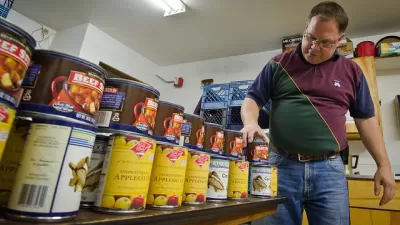In our work to build communities of opportunity where low-income people and people of color can thrive, we must acknowledge that income is how you get out of poverty, assets are how you stay out.

In Tuesday night’s State of the Union address, President Obama laid out a vision for rebuilding the middle class with pathways to the middle class for lower-income families. But to manifest this vision, we need a much stronger focus on addressing the root causes of concentrated, generational poverty: financial insecurity and lack of ownership.
In our work to build communities of opportunity where low-income people and people of color can thrive, we must acknowledge that income is how you get out of poverty, assets are how you stay out.
While income inequality in the U.S. recently hit its highest peak in 78 years, the wealth gap is even worse. The racial wealth gap—the difference in net worth between households of color and that of their white counterparts—has more than tripled since 1984. Today, African-American and Latino households have less than $1 in assets for every $6 that white households own. This is taking place in the context of a major demographic shift that will only magnify the costs of the racial wealth gap. By the end of the decade, the majority of youth will be people of color, and by 2044, the population majority overall will be people of color.
Assets and ownership are fundamental to economic opportunity and mobility. A child with a savings account in their own name is 2.5 times more likely to complete college than a child without one. That number jumps to 4.5 times more likely if that child is from a low-income household. Homeownership is linked to inheritance and access to credit, while access to credit is based on your income.
FULL STORY: Income is How You Get Out of Poverty, Assets are How You Stay Out

Alabama: Trump Terminates Settlements for Black Communities Harmed By Raw Sewage
Trump deemed the landmark civil rights agreement “illegal DEI and environmental justice policy.”

Study: Maui’s Plan to Convert Vacation Rentals to Long-Term Housing Could Cause Nearly $1 Billion Economic Loss
The plan would reduce visitor accommodation by 25% resulting in 1,900 jobs lost.

Planetizen Federal Action Tracker
A weekly monitor of how Trump’s orders and actions are impacting planners and planning in America.

Wind Energy on the Rise Despite Federal Policy Reversal
The Trump administration is revoking federal support for renewable energy, but demand for new projects continues unabated.

Passengers Flock to Caltrain After Electrification
The new electric trains are running faster and more reliably, leading to strong ridership growth on the Bay Area rail system.

Texas Churches Rally Behind ‘Yes in God’s Back Yard’ Legislation
Religious leaders want the state to reduce zoning regulations to streamline leasing church-owned land to housing developers.
Urban Design for Planners 1: Software Tools
This six-course series explores essential urban design concepts using open source software and equips planners with the tools they need to participate fully in the urban design process.
Planning for Universal Design
Learn the tools for implementing Universal Design in planning regulations.
Caltrans
Smith Gee Studio
Institute for Housing and Urban Development Studies (IHS)
City of Grandview
Harvard GSD Executive Education
Toledo-Lucas County Plan Commissions
Salt Lake City
NYU Wagner Graduate School of Public Service





























